Piece for alto saxophone and piano - André Jolivet
sight-reading 1880-1940 - vol.1
For centuries, "sight-reading", also called "deciphering", has been a test for music competitions. Composers are solicited for this exercise and compose a short text according to precise specifications (timing, difficulty, modes of instrumental playing, etc). Since the creation of a saxophone class entrusted to Adolphe Sax in 1857 at the Gymnase musical militaire, which is no other than an annex of the Conservatoire de Paris, and until the nomination of Marcel Mule in 1942, competitions have multiplied throughout France, both at the conservatoire and in various orchestras, mainly military.
The three anonymous texts of purely French style (volume 4 of this series devoted to decipherments: "andantino" of unknown date / "morceau à vue" in 1881 / "andantino" in 1890) come to us from the National Archives in connection with the Conservatoire National Supérieur de Musique de Paris. If these dates do not correspond to a possible assignment to the saxophone class because Adolphe Sax was no longer in service, one could imagine that they were composed for an external competition.
The origin of the undated "sight-reading" signed by Gabriel Dupont (1878-1914) (volume 2) is also an enigma. There is some doubt as to whether this text is indeed by the French composer, even if one recognizes the tenderness of this delightful page. In 1922, Guillaume Balay (1871-1943), then music director of the Garde Républicaine in Paris, composed two "sight-readings" for saxophone (alto and tenor), probably for a military competition (volume 5); let us recall that between 1870 and 1942, the Paris Conservatory had no saxophone class.
The city of Rheims welcomed two young composers who would become musical personalities with a pronounced aesthetic; first Georges Migot (1891-1976) who proposed a "sight-reading" (volume 3) in 1929 for the music institute competition, then André Jolivet (1905-1974) who composed his "deciphering" in 1938 (volume 1).
All these short pieces were meticulously studied before deciding to give them new life. This publication allows them to become part of the musical heritage of the classical saxophone.
Nicolas Prost
Saxophoniste
Association Saxiana
Duration: 2'15
Collection Nicolas Prost
for alto saxophone and piano

















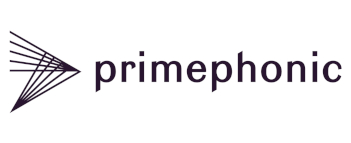



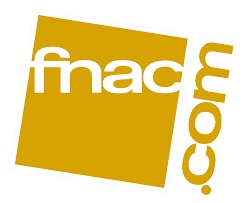
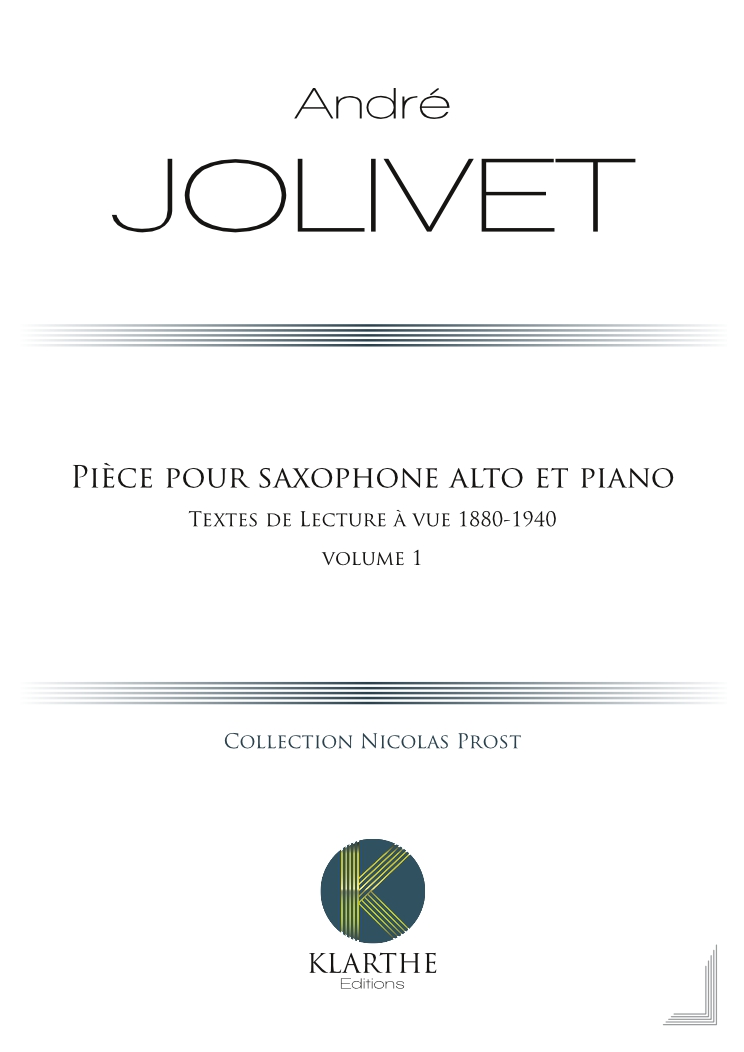
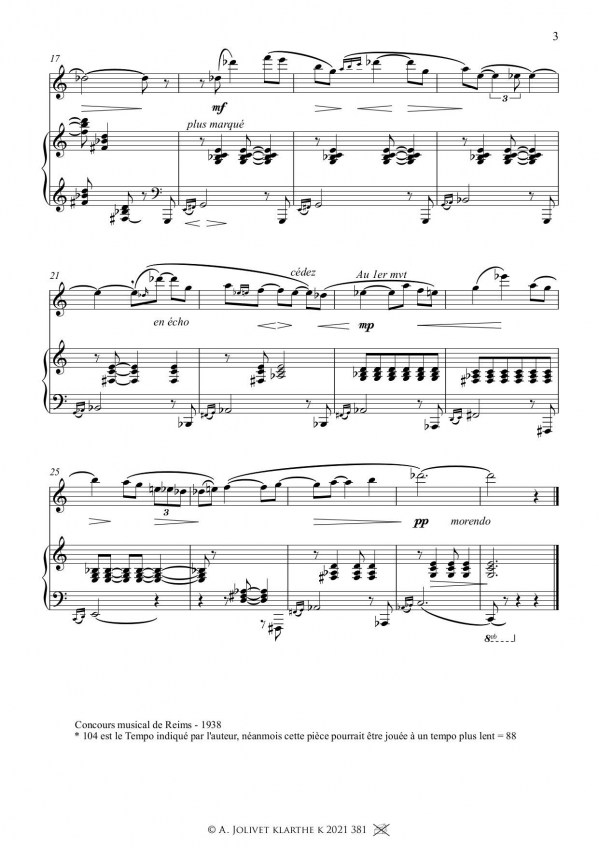

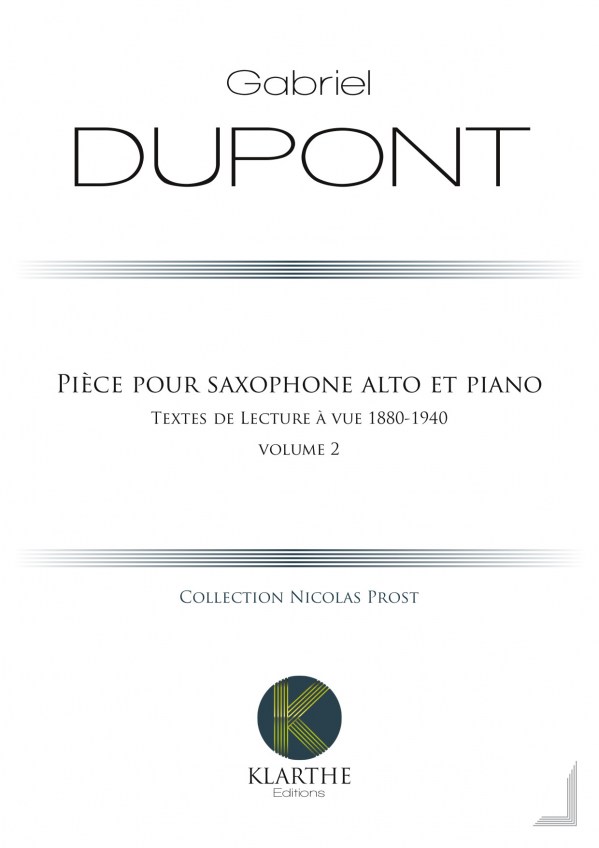 Piece for alto saxophone and piano - Gabriel Dupont
Piece for alto saxophone and piano - Gabriel Dupont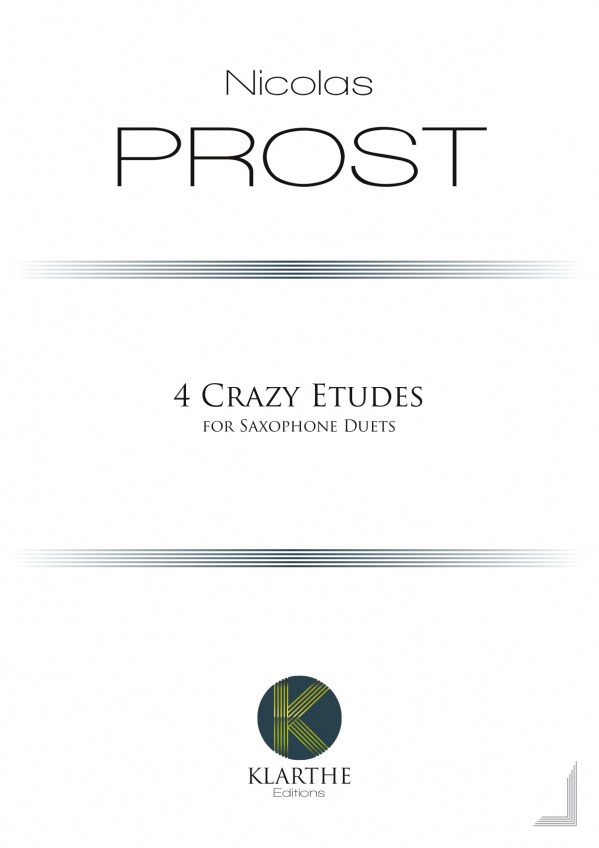 4 Crazy Etudes - Nicolas Prost
4 Crazy Etudes - Nicolas Prost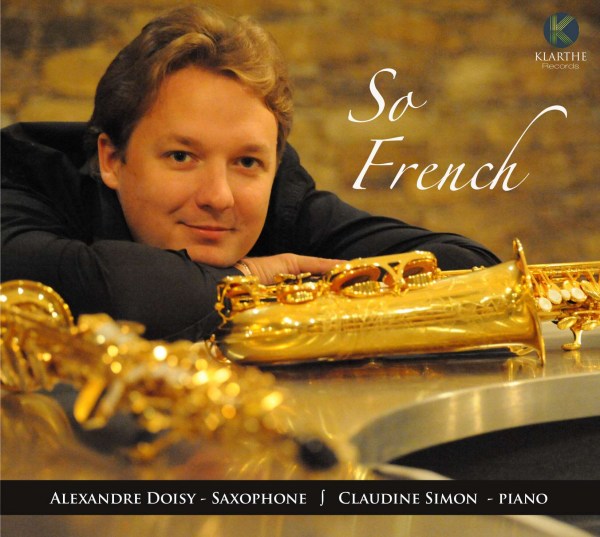 So French
So French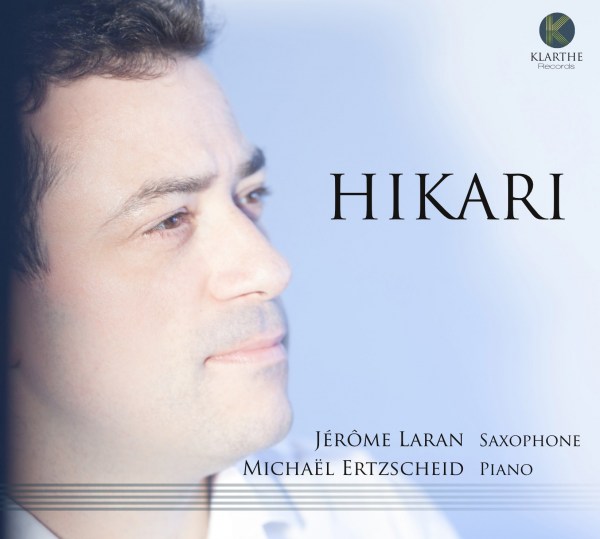 Hikari
Hikari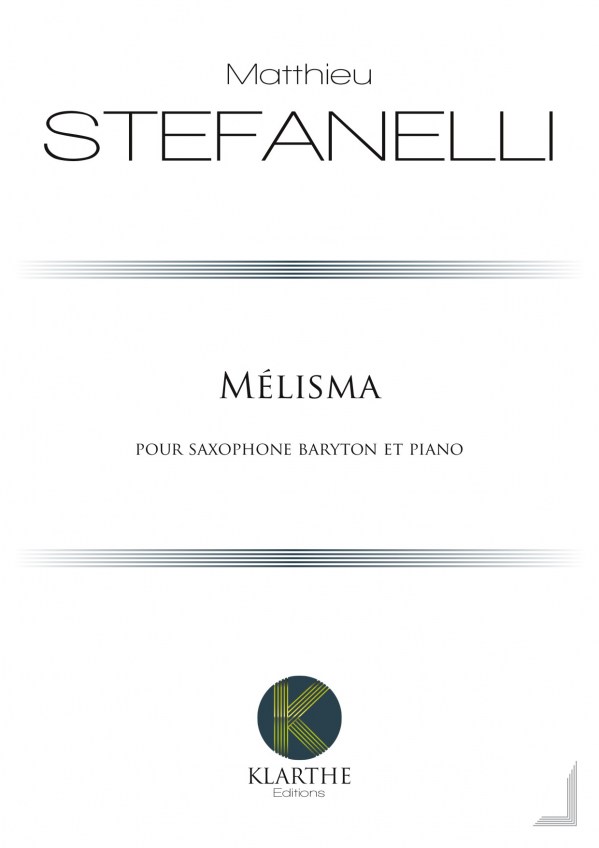 Mélisma - Matthieu Stefanelli
Mélisma - Matthieu Stefanelli